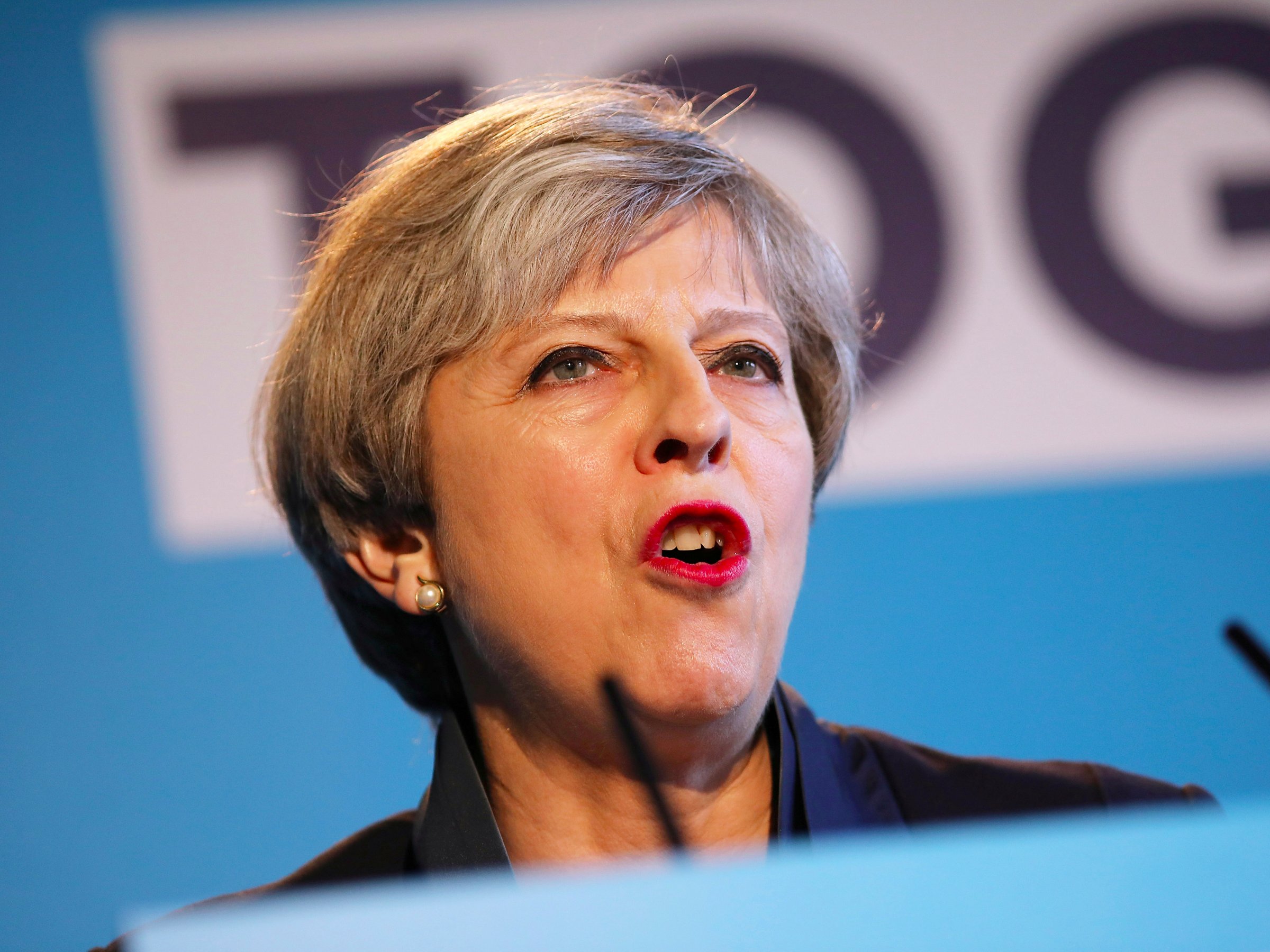 Britain’s Prime Minister Theresa May’s launches her election manifesto in Halifax, May 18, 2017.Reuters/Dan Kitwood
Britain’s Prime Minister Theresa May’s launches her election manifesto in Halifax, May 18, 2017.Reuters/Dan Kitwood
LONDON — New pledges made by Prime Minister Theresa May to target the UK’s boardrooms with stricter rules on things like corporate pay and mergers have not gone down well with the country’s business leaders, with one senior figure accusing the prime minister of “giving little sign of listening to what companies need,” according to the Financial Times.
May unveiled the Conservative Party’s election manifesto on Thursday, making a series of promises designed to, in the eyes of the party, increase fairness in Britain’s corporate sector.
Pledges include:
- Stopping bosses earning too much;
- Giving workers more power and better employment protection;
- Defending UK businesses from aggressive overseas takeovers done largely for tax purposes.
May’s commitments have, however, not been well received by many in the business community with new rules on executive pay coming in for the strongest criticism.
Here is what the Tory manifesto says on corporate pay:
“We believe people should be rewarded for their talents and efforts but the public is rightly affronted by the remuneration of some corporate leaders.”
“The next Conservative government will legislate to make executive pay packages subject to strict annual votes by shareholders and listed companies will have to publish the ratio of executive pay to broader UK workforce pay. Companies will have to explain their pay policies, particularly complex incentive schemes, better. We will commission an examination of the use of share buybacks, with a view to ensuring these cannot be used artificially to hit performance targets and inflate executive pay.”
And here is what Carolyn Fairbairn, head of the UK’s most powerful lobby for the business, the CBI said in response: “The next government’s intentions on executive pay would be best served by developing the existing regime to focus stricter votes on those cases that warrant greater attention.”
Executive pay has become a hot button issue in UK politics in recent years, with the Labour party already committing to capping maximum pay at all employers at 20x the wages of the lowest earner in this election campaign. This would be enforced “in the public sector and in companies bidding for public contracts” and has been pledged by the party “because it cannot be right that wages at the top keep rising while everyone else’s stagnates.”
While May’s pledges on pay are nowhere near as radical as Labour leader Jeremy Corbyn’s, they are surprising, given the Conservative’s traditionally pro-business, anti-red tape agenda.
Anti-business sentiment is also evident in the party’s pledge to charge all companies employing migrant workers £2,000 by doubling the Immigration Skills Charge, saying that “skilled immigration should not be a way for government or business to avoid their obligations to improve the skills of the British workforce.”
May has consistently taken a hardline approach on her future immigration policies since becoming PM last summer, with Brexit strengthening her resolve to do so. By curbing immigration harshly, however, May risks alienating businesses that rely on foreign workers for a large proportion of their staffing needs.
“The Conservative manifesto has an Achilles heel — in a global race for talent and innovation UK firms risk being left in the starting blocks because of a blunt approach to immigration,” Fairbairn added.
Several major companies have already warned that this could be the case, most notably cafe chain Pret A Manger, which said it could be facing a staffing crisis off the back of post-Brexit immigration rules.
Only one in 50 job applicants to the hugely popular sandwich chain is British, HR chief Andrea Wareham told a government committee in March.
The staff at the high-street chain come from 110 different nationalities, with 65% of those from outside the UK being EU citizens, she told the House of Lords Economic Affairs Committee.
“I would say that one in 50 people that apply to our company to work is British.”
NOW WATCH: SCOTT GALLOWAY: I believe every time Amazon reports a profit a manager gets yelled at















